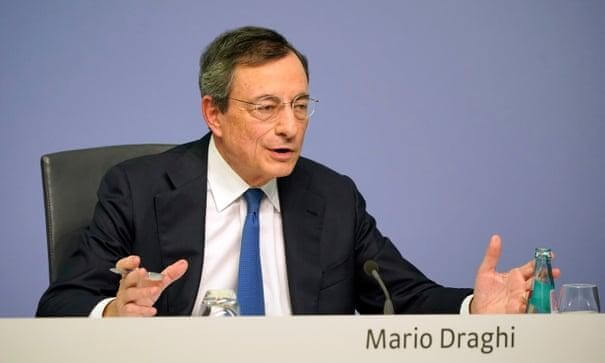
The ECB maintains Interest Rates Low As Chair Departs
In the wake of the news that its Chairman will be stepping down after eight years, the European Central Bank continues to hold rates low. In what is appearing to be a historic rate cut, the ECB continues to soldier on even with the imminent departure of Mario Draghi.
Interest Rates to Remain At Their Lowest
While many might have expected drastic moves in the financial markets, the Euro continued to trade fairly. Its exchange rate against the dollar remained flat at $1.112. This exchange rate is remaining although the ECB announced that its current main interest rate would remain at the low level it is.
During Draghi’s last meeting last week, the ECB chose to maintain the interest rate as is. Some sources say this did not work out well with some of Draghi’s colleagues, who opined that the rate ought to increase.
Speaking to journalists, the outgoing chairperson remained positive. He said that incoming data continues to point towards positive but moderate growth for the second half of the year. He further explained that economic uncertainties around the globe were affecting manufacturing in the Eurozone. Manufacturing is, however not the only affected sector; business investment is another one that Draghi pointed out.
A Battle to Keep Inflation Low
The ECB is expecting a progression in the GDP rate. The central bank is expecting a 1.1% rate for 2019 and expects this to grow by 0.1% in 2020 to stand at 1.2%. The real battle, however, is on keeping inflation within a tamable range. For 2019, the ECB forecasts the inflation rate to stand at 1.2%. The ECB forecast this rate to fall further in 2020 to stand at 1%. The ECB has the mandate of maintaining inflation below 2% but also keeping it close to that benchmark.
In his opinion, Draghi argues that more room for accommodation is necessary to shield the Eurozone from uncertainties. He bases his argument for monetary accommodation on the outcome of economic analysis vis-à-vis signals from the monetary analysis.
Lower Growth Rates In The EuroZone
In recent times, experts have observed lower growth rates in the Euro Zone compared to other economic zones. The reason for this is the continued uncertainty over Brexit. This week British PM, Boris Johnson, got a further extension on Brexit from the previous date of 31st October. Global trade tensions and a weakened manufacturing sector also lead to the causes of this slowed growth rate.
On Thursday, the ECB affirmed that the second round of QE will commence on 1st November. The monthly pace of this is €20 billion. The ECB expects this to run for as long as it is necessary to implement the accommodative monetary policies and have their effects felt. However, it will stop later, and the ECB will start increasing its key interest rates.
Draghi says that at the moment, he does not know what is next after leaving the ECB. However, he reiterates that he leaves the central bank as a fulfilled man who tried to comply with the mandate.




